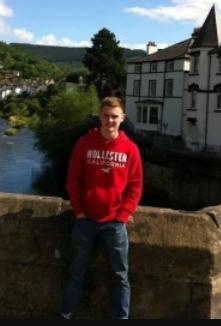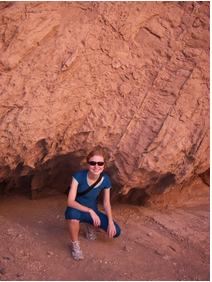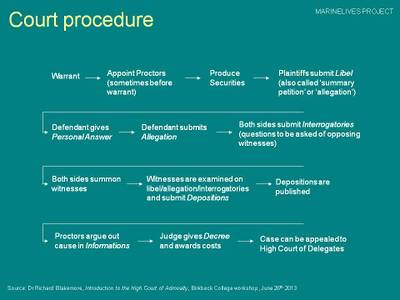MarineLivesFrontPage10072017
Contents
We need your help to create three thousand biographies
To give you a flavour of what is involved, please take a look at any of the following people: The shipwright and ship's carpenter William Venus, the grocer Henry Tulse, and the sailor and foremastman Henry Betts. Click on their names and you will go to a short biography and factbox about the person.
You can see the simple form which has been used to create these biographies by typing one of their names into the box below and clicking on "Create or edit a MarineLives biography", for example "Henry Betts". You will be able to see the information as it has been entered by a volunteer. To be able to edit the information, or to create a new biography, you will need a Username and Password. Please contact us if you would like to learn more about volunteering.

Interviews with historians
Recent interviews include social historians Dr Andy Burn (Durham University) and Dr James Brown (University of Sheffield) and maritime historian Dr Cathryn Pearce (University of Greenwich)
Dr Andy Burn is a post-doctoral fellow at the University of Durham. His current research concerns "Social Relations and Everyday Life in England, 1500-1640", a Leverhulme-funded project led by Professor Andy Wood. The first year of this project involved extensive research across England in local record offices and archives in which Andy examined mainly legal documents generated by Church and National courts. Andy's research is now moving more online and will mine State Papers (using State Papers Online) as well as Early English Books Online (EEBO), plus local records accessed electronically.
Click here to read the interview with Dr Andy Burn.
Dr James Brown is based at the University of Sheffield. He is affiliated both to the Sheffield HRI Digital group and to the Sheffield history faculty. He is currently one of two research associates on the project 'Intoxicants and Early Modernity: England, 1580-1740' (ESRC; PI: Professor Phil Withington). James completed his PhD at the University of Warwick on Inns, Taverns and Alehouses in Early Modern Southampton in 2008. Between 2009 and 2013 he was project coordinator and then digital project manager for 'Cultures of Knowledge: Networking the Republic of Letters, 1550-1750' at the University of Oxford (Mellon Foundation; PI: Professor Howard Hotson), overseeing (inter alia) the development of its union catalogue of sixteenth-, seventeenth-, and eighteenth-century correspondence, Early Modern Letters Online.
Click here to read the interview with Dr James Brown
Dr Cathryn Pearce is an American maritime historian, living and working in the South West of England, who has studied and worked in Alaska, Canada and England. She was an active transcriber in the MarineLives project team back in 2012, when the project was first established. She received her BA in History from the University of Alaska Fairbanks, and her MA in British and Maritime history from the University of Victoria in British Columbia. She received her doctorate in maritime studies from the University of Greenwich. She edits the peer reviewed online journal Troze for the National Maritime Museum, Cornwall.
Cathryn's current research project is on life saving and coastal communities. This project centres on the private physical manuscript archive of the Shipwrecked Mariners Society. Cathryn has imaged the minute books of the Society, together with associated materials, and is now transcribing the material and exploring the background of the many individuals mentioned therein. The archive is located in Chichester and is a purely a paper archive with no electronic finding aids or search engine.
The Silver Ships research project
We would like to recognise and thank all those who have contributed to our project (in alphabetical order), whether as volunteer transcribers, annotators, commentators, advisors, interviewees, or PhD Forum participants.
Dr Aquiles Alencar-Brayner
Dr Roberta Anderson
Deborah Ashby
Rachel Bates
Rowan Beentje
Dr Richard Blakemore
Lior Blum
Katie Broke
Dr James Brown
Dr Andy Burn
Elio Calcagno
Michelle María Early Capistrán
Rachel Carter
Giovanni Colavizza
Dr Justin Colson
Thierry Daunois
Dr John Davies
Thomas Davies
Jonathan Dent
Melvyn Dresner
Dr Stuart Dunn
Professor Kai Eckert
Bob Egan
Dr Charlene Eska
Louise Falcini
Emilie-Jane Farrimond
Dr Janet Few
Sara Fox
Dr Ian Friel
Dr Perry Gauci
Marja Geesink
Adam Georgie
Jaap Geraerts
Jamie LH Goodall
Guy Grannum
Colin Greenstreet
Francesca Greenstreet
Adam Grimshaw
Karen Gunnell
Yerevag Hagopian
Dr Liam Haydon
Phillipa Hellawell
Dr Helmer Helmers
Dr Philip Hnatkovich
Rachel E. Holmes
Dr Jenni Hyde
Steve Ives
Alex Jackson
Stefan Jäggi
Elin Jones
Sue Jones
Ross Keel
Dr Patricia Keller
William Kellett
Sara Kerr
John Kuhn
John Layt
Sjoerd Levelt
John Levin
Grace Mallon
Simon Marsh
Dr Alan Marshall
John Miller
Anne Mills
Kate Morant
Matthias Müller-Prove
Professor Steve Murdoch
Dr Shavana Musa
Harriet Richardson
Gordon O'Sullivan
Katherine Parker
David Pashley
Dr Cathryn Pearce
Nga Phan-Bellis
Professor Simone Paolo Ponzetto
Jo Pugh
Patrizia Rebulla
Bethan Reynolds
Daniel Richards
Andrew Richens
Dr Mia Ridge
Dominique Ritze
Dr Gavin Robinson
Margaret Schotte
Steven Schrum
Laura Seymour
Ida Sjoberg
Edmond Smith
Daniel Stewart-Roberts
Chad Stolper
Roger Towner
Alexis Truax
Dr William Tullett
Oliver Turner
Dr Brodie Waddell
Samuel Watson
Jill Wilcox
Royline Williams-Fontenelle
Ad van der Zee
Dr Kathrin Zickermann
Dr Suze Zijlstra
Cäcilia Zirn
and the ever helpful but anonymous @_mapnut
Three large ships (The Salvador, the Sampson and the Saint George), of supposed Lubeck and Hamburg build and ownership, were captured by the English in 1652 with highly valuable cargos of silver bullion.
The ships were on their way from Cadiz with bullion from the Spanish West Indies going northwards. It was disputed in the English Admiralty Court as to whether the ships were bound legally for the Spanish Netherlands, or illegally for Amsterdam.
The case was endowed with political as well as commercial weight - the Commonwealth, and then the Protectorate, was keen to have the bullion declared lawfull prize, but the Spanish government contested this.
The many and varied court depositions and other English Admiralty (and English and Spanish State Paper) records give very granular and highly colourful accounts of Seville and Cadiz, Hamburg and Lubeck, the Spanish Netherlands, the by-ways between the Spanish Netherlands and Amsterdam by which bullion could be smuggled overland and by canal, and the River Thames, where the ships and sailors were held following seizure.
Thomas Violet, a rather dodgy goldsmith, was involved as an agitator on behalf of the State, and published a pamphlet pleading for reimbursement of his efforts, which supplements the Admiralty Court material on the MarineLives wiki.
The Silver Ships project was launched by participants in the MarineLives 2015 summer transcription training programme and continues to be driven by volunteers.
Click to read more about the Silver ships and the historical and legal context of the resulting disputes.
Our team based transcription programmes
We run regular team-based transcription programmes on-line, facilitated by trained team leaders, with teams of three or four volunteer associates. These programmes last ten weeks, and will take a transcriber from a novice to a confident transcriber in that space of time.
Please contact us to discuss volunteering, or to explore how we might work with your University, School or Local History Society.
Thomas Davies was a third year history undergraduate student studying at Bath Spa University. In the summer of 2014, Thomas was a member of a four person virtual team of volunteers transcribing Admiralty Court witness statements from 1658 to 1660, facilitated by Dr. Philip Hnatkovich in Pennsylvania:
"There were some challenging aspects of the programme — the main being distance. This was because we worked as a team and half of the team were based in the United Kingdom and half were based in the United States, so we had to be aware of time differences and that we would be unable to meet in person.
To combat this we used email, Google Hangouts, and Skype and made good use of all the resources available to stay in touch when working on the documents together. We had weekly calls to discuss team business. The weekly calls helped because we would talk about the problems or issues we faced weekly and how the transcriptions were to be presented covering topics such as layout or abbreviations.
The biggest challenge I faced in the transcription itself was becoming accustomed to the peculiar writing and distinguishing letters. Some letters look very similar, such as f’s and s’s, r’s and c’s not to mention t’s and l’s. I began transcribing effectively by taking it slow and working out the letters individually instead of looking at the word as a whole as we do with modern writing. I found this approach to be very effective.
MarineLives created a Bath Spa student section that helped me significantly, showing templates of letters and the different forms they have. This allowed me to tackle the many different writing styles the clerks used. Once I was able to distinguish between letters more clearly with considerable practise, I found I could transcribe enough of the page to get a good idea of what was being said in the documents. Then, I could alter words that did not fit within the context of the deposition, or using the context as a guideline as to what certain words should be."
Katherine Parker is a Ph.D. candidate at the University of Pittsburgh. She is currently writing her dissertation entitled “Toward a more ‘perfect knowledge': British geographic knowledge and South Seas exploration in the eighteenth century. She participated in the MarineLives Ph.D. forum in 2013, and the MarineLives summer programme in 2014:
"On summer research trips to London in 2011 and 2012, I had looked at a few HCA documents and knew that the cases recorded in them offered rich material for social, economic, and naval history. Over the course of several skype meetings, I and other PhD students got to give our opinions about the proposed platform and methodology for transcription. Working with a team created a strong community aspect to the project from the beginning; I have always been impressed by the inclusiveness and openness that drives MarineLives. Also, it was refreshing to have my opinion valued as a PhD student, as sometimes that stage in one’s education is isolating and transitional—you are not yet qualified as an expert, but also not unknowledgeable about certain fields.
The value MarineLives placed on the voices of the PhD forum made me want to participate further, even though the works being transcribed were not strictly within the chronological bounds of my dissertation project. Thus, when the summer transcription project was created, I jumped at the opportunity to use paleographic and transcription skills I had gained after a year in London archives on a Social Sciences Doctoral Dissertation Fellowship (2013-14).
Writing styles change over time, just like clothing and furniture styles. Thus, the letters inscribed within HCA volumes from the mid-seventeenth century posed a challenge for me, as I am used to the fluid, upright cursive (often written by a trained scribe or clerk) of the mid-eighteenth-century Admiralty. I came to enjoy the challenge of squinting at the digital pages in front of me, willing the words to make sense, filling in paragraphs slowly until suddenly they all made sense."
MarineLives Digital Pop Up Lab
The MarineLives Digital Pop Up Lab started this week.
Team 1 will work on prototyping semi-automated handwriting recognition
We will explore line and text block recognition of legal documents using software tools developed by the Transkribus project. If we can get a Java coder on the team, we will embed the Transkribus tools in the MarineLives wiki. The team will work with C17th records from the English High Court of Admiralty and from the King's Bench. We will explore whether Transkribus tools can be used by volunteers to create metadata for virgin manuscripts for which there are neither existing metadata, keywords, nor full text transcriptions. We are interested in both the software and workflows required to systematise the creation of metadata and keywords to make previously "invisible" manuscript images discoverable.
Click here for more detail on Team One
Slavery - Lists 34 English, Dutch & Portuguese slave ships in 1650s HCA records
Probate records - Lists full text transcriptions of merchant wills available on MarineLives wiki
Probate & London directory 1677 lookup - Matches merchants in 1650s Admiralty Court records to Probate records and listing of merchants in 1677 London merchant directory
Team 2 will work on tailored algorithmic search, and will prototype semantic search methods on our semantic media wiki
We will explore how historians approach historical search when they are looking for people, places and dates. We will look at search engines employed by archives and libraries such as the National Archives and the British Library, at search tools provided by digital resources such as British History online and at federated search tools such as Connected Histories. We will look at search tools, glossaries, and lookup tables on the MarineLives wiki. Our focus will be on how historians really work, and on how technology can be used to speed up and make more effective the day-to-day task of historical search.
An explicit goal of team two will be to understand the semantic properties of the MarineLives semantic media wiki. This wiki was implemented in May 2015 by one of our volunteers, Rowan Beentje. With four million words of full text, over 10,000 manuscript images and over 20,000 pages, improved search will have a dramatic impact for all users of the wiki. A number of potential semantic search plug-ins exist, and we would like our volunteers to specify the functionality our users need and to explore the appropriate semantic search solution.
Click here for more detail on Team Two
Click here for background on semantic search techniques applied to the MarineLives wiki
Click here for access to the Special:Ask Semantic Query Form to query our the MarineLives wiki
Team 3 will work on visualisation techniques
We will explore how visualisation techniques can be used by historians for multiple purposes - to improve the discoverability of data, to highlight and analyse linkages in data, and to aid the comprehension of data. We will undertake an analysis of our own needs as historians and will explore how software designers have approached meeting those needs.
An explicit goal of team three is to understand the visualisation potential of the MarineLives full text corpus and to explore approaches to mining the data for visualisation applications.
We would like to explore the use an off-the-shelf Named Entity Recogniser to detect places, ships and dates, and to visualise the results in multiple ways and for multiple analytical purposes. We would like to compare this automated approach to the generation of tagged data to the hand extraction of geographical and other tagged data. We will build off earlier work done in collaboration with the Department of Informatics at the University of Mannheim. Team members will have an opportunity to work with, and improve upon, a MarineLives dataset for C17th ship sailing times between ports and dwell time in ports
Click here for more detail on Team Three
For further background please use our contact form.
For information on the technical background to the MarineLives semantic media wiki and to the three teams, please look at 'Tech Talk' by our semantic media wiki designer, Rowan Beentje
The Court records
The English High Court of Admiralty produced a wide range of documents. Click here for a full listing of the Admiralty Court records within scope of MarineLives project
The various steps in a particular case can be followed in summary form in the Acts of Court.
A case was commenced with the issuing of a Warrant by the Court, and the preparation of a Libell or an Allegation by the party commencing the case.
Prior to witnesses being called to make their depositions, the defendant or "respondent" might make a Personal Answer in response to the Libell or Allegation.
The most accessible of the court records are the statements made by witnesses, which are called Depositions. These depositions were in response to written Interrogatories, which were prepared by both plaintiffs and defendants in a case.
Various written documents were submitted by plaintiffs and defendants, as well as witnesses, during a court case. Some of these have survived as loose documents in the Instance Papers.
Many cases were settled prior to the giving of a formal verdict or Sentence. For those cases which went to sentence, the sentences can be found in document bundles. These bundles often include bills of expense related to the case, and in some cases include copies of the allegations or libells, and other miscellaneous documents.
Finding Aids
Finding aids by alphabet, age, folio, geography and occupation
HCA 13/67
Feb 1653 - Sep 1653
170 pagesHCA 13/68
1653 - 1654
1405 pages
734 deponents
Alphabetical
By FolioHCA 13/71
1656 - 1657
1366 pages
Alphabetical
By GeographyHCA 13/72
1657 - 1659
1330 pages
Alphabetical
By Age
By Geography
By OccupationHCA 13/73
1659 - 1660
1333 pages
Alphabetical
By Age
By Folio
By Geography
By Occupation
Finding aids by folio
HCA 13/124
Personal Answers
1650 - 1652
385 pages
By FolioHCA 3/46
Act Book
1654 - 1656
307 pagesHCA 3/47
Act Book
1656 - 1658
52 pages








